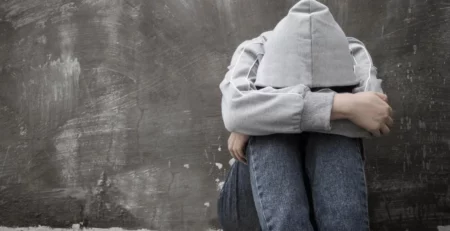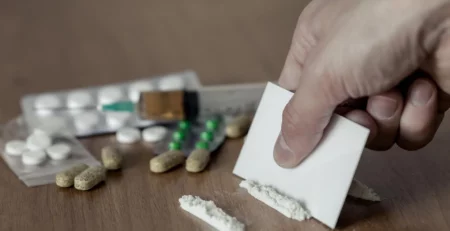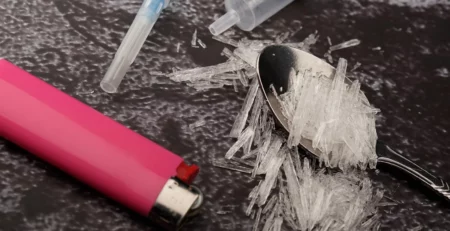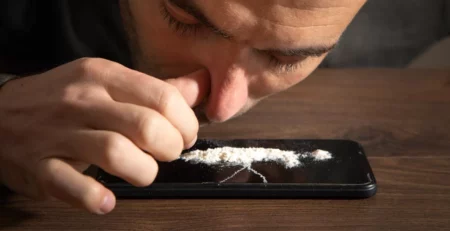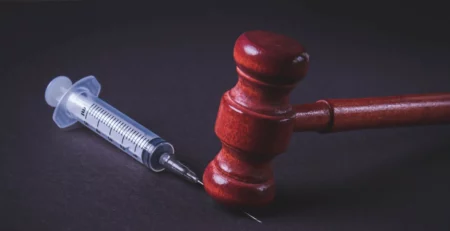How to Break a Trauma Bond
Getting Resources and Support to Break Trauma Bonds Effectively
Trauma treatment is an essential part of breaking a trauma bond and healing from it. Although you can physically leave a trauma-bonded relationship without getting professional support, treatment will address the effects of the relationship. If left unaddressed, the effects of trauma and trauma-bonded relationships can be severe and uncontrollable.
Treatment for trauma has been proven effective and can help alleviate both physical and emotional symptoms, as well as those that could show up in current social connections or other important parts of your life. Icarus Behavioral Health Nevada offers evidence-based trauma treatment programs that can help people like you break free from the effects of trauma bonds.
So, how do you break a trauma bond? How do you recover from it once you do?
This article will provide an in-depth look at trauma bonds and recovery. Let’s start by defining what a trauma bond is.
Then, we’ll discuss how to break a trauma bond, navigate the next steps and healing after breaking a trauma bond, possible trauma bond withdrawal symptoms, and how to rebuild your life in the long term.
What is a Trauma Bond?

A trauma bond is a strong emotional attachment between an individual and the person, place, or thing that abused them or caused them harm. You may develop a trauma bond in various situations, such as those where you were or are the victim of domestic violence, emotional or physical abuse, human trafficking, kidnapping, exploitative employment, or a cult.
If you have heard of Stockholm syndrome, it is a good example of a specific type of trauma bond. Stockholm syndrome refers to the connection a hostage might develop with their captor(s).
The Top Signs of a Trauma-bonded Relationship
In trauma-bonded relationships, you will often notice two things: a marked power imbalance and intermittent abuse (alternating between good times in the relationship, even if they are short, and abuse of any kind).
Here are some additional signs of a trauma bond.
- There was a positive or enjoyable period at the beginning of the relationship (love bombing), but then, the person’s behavior changed.
- You do not speak up about your feelings or opinions because you don’t want to upset the other person.
- You make excuses for or defend the person’s behavior when talking to others.
- You feel as though you could not handle losing the relationship.
The emotional attachment you experience in a trauma bond will alleviate in time
once you have left. While it takes time to overcome the effects, you can break free.
Get Confidential Trauma and PTSD Assessment
How to Break a Trauma Bond
Trauma bonding is very common for people in any type of abusive relationship. Recognizing that you are in a trauma-bonded relationship is almost the first step toward breaking free from it. Then, leaving the relationship is your #1 priority.
When it comes to leaving an active trauma bond, making a plan that ensures that you are safe when you leave is critical. If you live with the person, this may include collecting important documents, identifying a safe place to go, and getting help from trusted family members, friends, or local organizations.
Learn more about relationship abuse safety planning on the National Domestic Violence Hotline website.
Sometimes, people leave a trauma-bonded relationship with a person, place, or thing without having a name for it upon realizing that they aren’t being treated properly (or for another reason). Reflecting back on your experiences, in this instance, could show you that a trauma bond is what you’re healing from.
Next Steps: Healing From Trauma Bonds

Healing from a trauma-bonded relationship is possible. Here are some steps you can take to overcome any type of trauma bond.
Icarus Behavioral Health Nevada provides professional help for trauma survivors covered by insurance. To make care accessible, Icarus Behavioral Health accepts nearly all health insurance plans.
Please call our admissions line to confidentially verify your health insurance coverage.
Working With a Mental Health Professional
When it comes to healing from the aftermath of a trauma-bonded relationship, seeking mental health care is the most important thing you can do. A qualified mental health professional providing trauma therapy can help you:
- Work through negative feelings, such as guilt, shame, or self-blame.
- Address other trauma symptoms (e.g., depression, flashbacks, or trouble sleeping)
- Discuss what a healthy relationship looks like and establish clear boundaries and other healthy relationship skills for current and future relationships.
- Build a toolkit of coping strategies for emotion regulation and coping with triggers.
- Identify and reframe negative thoughts about yourself.
- Learn to listen to yourself and your intuition.
- Rebuild your sense of self and self-esteem.
- Develop positive self-talk and self-compassion.
Icarus Behavioral Health Nevada provides comprehensive trauma treatment and trauma-informed therapy for people seeking support for trauma and trauma disorders, such as post-traumatic stress disorder (PTSD). Therapy can coincide with other treatments and forms of support, such as medication, somatic shaking therapy and social support, depending on your needs.
Our trauma-informed providers specialize in various types of trauma therapy. We offer a full continuum of care, including both inpatient and outpatient programs for trauma recovery.
Whether you need an intensive inpatient treatment program, typical outpatient treatment that occurs 1-2x per week, or something in between, we can help.
Get Accredited Treatment Programs at Icarus
Create Positive Self-Care Habits
Trauma disorders often come with emotional and physical symptoms that can be challenging to live with. It is important to practice self-care, which may include positive self-talk, healthy routines (e.g., personal hygiene, sleep hygiene, and eating regular meals), the use of coping skills, enjoyable activities and hobbies, or something else.
Build a Support System
You may benefit from attending support groups for survivors of abuse. Often, support groups are free, making them accessible to people who can’t access the support of mental health professionals at this time.
Your personal support network can also involve friends, family members, and other trusted people in your life.
Trauma Bond Withdrawal Symptoms

It can be hard to break or leave a trauma bond, but why is that the case? The emotional abuse that occurs in a trauma bond relationship exists to manipulate you and develop a sense of emotional connection that can be tough to get away from. Trauma bonds make you question yourself and crave positive times or affection from the other person.
While it may be challenging for others to understand, going through emotional withdrawal symptoms and grief is very normal for people breaking away from trauma-bonded relationships.
You may notice symptoms such as the following.
- Missing the unhealthy relationship
- Feelings of depression or loneliness
- Trouble sleeping
- Anxiety or restlessness
- Confusion
Once the unhealthy attachment has been broken for a while, symptoms often alleviate. A mental health professional can help you through this stage and as you move forward in trauma recovery.
Rebuilding Your Life After a Trauma Bond Relationship

After you break free from a trauma bond and move through the initial stages of time away from the relationship, it’s time to do the deeper healing work and focus on personal growth. This could relate to your career, going back to school, hobbies, building friendships that are positive for your well-being, and other goals.
While the abused person will often experience low self-esteem as a result of relationships marked by the traumatic bonding theory, this is the time when they get to rebuild it. Sometimes, people who enter trauma bonds will have had other traumatic experiences (e.g., childhood trauma), which can also be addressed in therapy.
In addition to other goals, our trauma treatment programs will help you explore what you want in life and discover what your next steps look like. There’s a far better life on the other side of trauma bond breaking, and having proper emotional support matters for anyone who has been on the receiving end of any type of abusive behavior.
Call Icarus in Nevada for Comprehensive Trauma Treatment
If you’ve been in an abusive relationship, you know that it takes time to heal. Whether your trauma-bonded relationship was recent or long in the past, it is essential to seek professional help.
Our trauma treatment programs in Nevada are here to help you overcome trauma bonding and create a life you are proud of.
Please reach out to Icarus Behavioral Health Nevada to learn more about how we can help you overcome traumatic events, heal from trauma bonding, and build healthy relationships.
Up To 100% of Rehab Costs Covered By Insurance
FAQs About How to Break a Trauma Bond
How do I get out of a trauma bond?
Getting out of trauma bonds can be a multi-step process, and it is different for everyone depending on the situation. In the case of romantic relationships and other applicable situations, making a safety plan is imperative.
TheHotline.org has an interactive guide to safety planning that can help.
What are the 7 stages of the trauma bonding process?

Rarely does emotional abuse start right away–trauma bonds often move in stages, which is part of how people enter them without realizing it.
The seven stages of trauma bonding include:
- Love-bombing: Many abusive relationships start with love-bombing, where the perpetrator showers you with excessive positive attention or affection. This often leads people to develop an emotional bond quickly and assume that the perpetrator has positive intent.
- Trust and dependency: Once love-bombing builds the foundation for you to stay, the negative parts of the relationship start to emerge. At this stage, the abusive person starts to test your trust and dependency. They may get defensive, angry, or shut you down if you raise concerns, which might lead you to feel bad and question yourself.
- Criticism: At this stage, the person may start to criticize you. The criticism could be subtle in some instances, but it is designed to tear your self-esteem down.
- Manipulation and gaslighting: Once your self-esteem is torn down, the abusive partner, person, or organization is able to manipulate you and lead you to question yourself.
- Resignation and giving up: At this stage, you will start giving in and giving up on fighting back or raising concerns, often to avoid further conflict.
- Loss of self: Now that you feel unable to trust yourself and your intuition, you experience a loss of your sense of self. Even someone who typically has a strong sense of self or who is usually confident can fall into this; you may reflect on this stage later, realizing that you felt small, disconnected from, or unlike yourself.
- Addiction: This is the stage where you experience emotional addiction to the relationship. Whether love-bombing remerges or not, whether it may or may not keep you hopeful that the relationship will be positive or “as good as it was in the beginning,” you will likely feel unable to leave or will have a significantly harder time leaving at this point.
Understanding the stages of trauma bonding can help you make sense of past abusive relationships. Remember that the situation is not your fault. While there are risk factors for trauma-bonding, it’s possible for anyone to enter a trauma-bonded relationship. It’s also 100% possible for those who have been affected by unhealthy relationships to heal and pursue healthy relationships in the future.
Can trauma bonding be fixed?
Trauma bonding is fixed by leaving the relationship. While it is common for people to hold out hope and work to fix an unhealthy, abusive, or toxic relationship, developing a plan to leave safely is the best thing to do for your well-being.
How long does it take to break a trauma bond?
There is no set length of time it takes for a person to break free from a trauma bond. The amount of time it takes for you to leave a trauma-bonded relationship will be unique to you.
Similarly, there is no set length of time the healing process will take. People heal from unhealthy or abusive relationships, including trauma-bonded relationships, at different rates.
References
- https://law.syracuse.edu/wp-content/uploads/ARTICLE_1_Attached_to_Pander_Report.pdf?_ga=2.140437235.1100982440.1672826098-12924726.1672826098
- https://pubmed.ncbi.nlm.nih.gov/8193053/
- https://www.thehotline.org/plan-for-safety/
- https://www.thehotline.org/plan-for-safety/create-your-personal-safety-plan/



